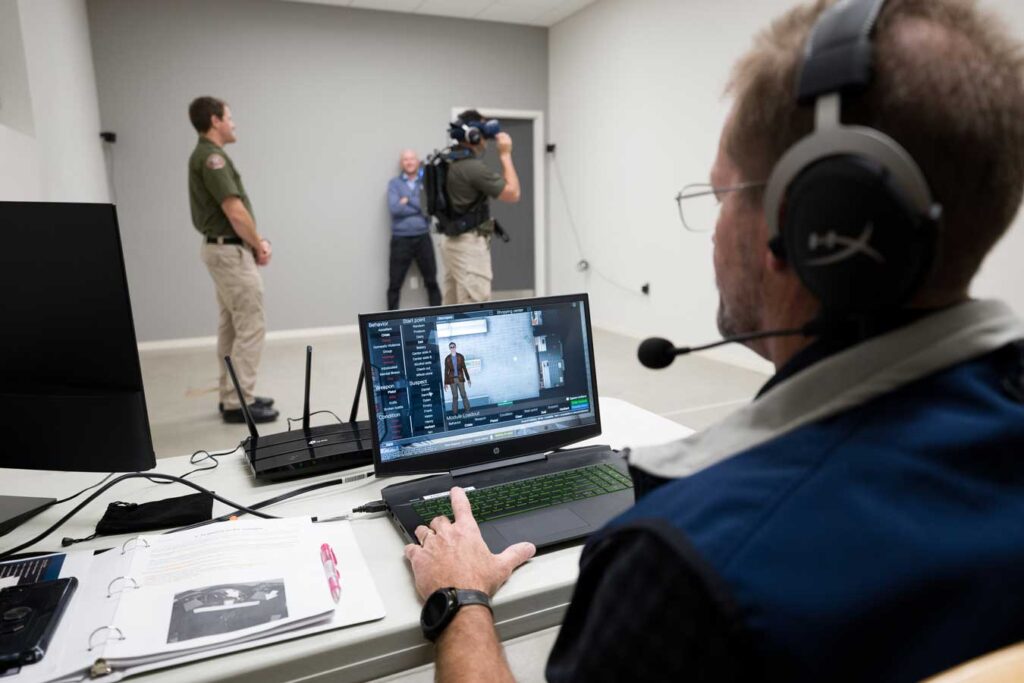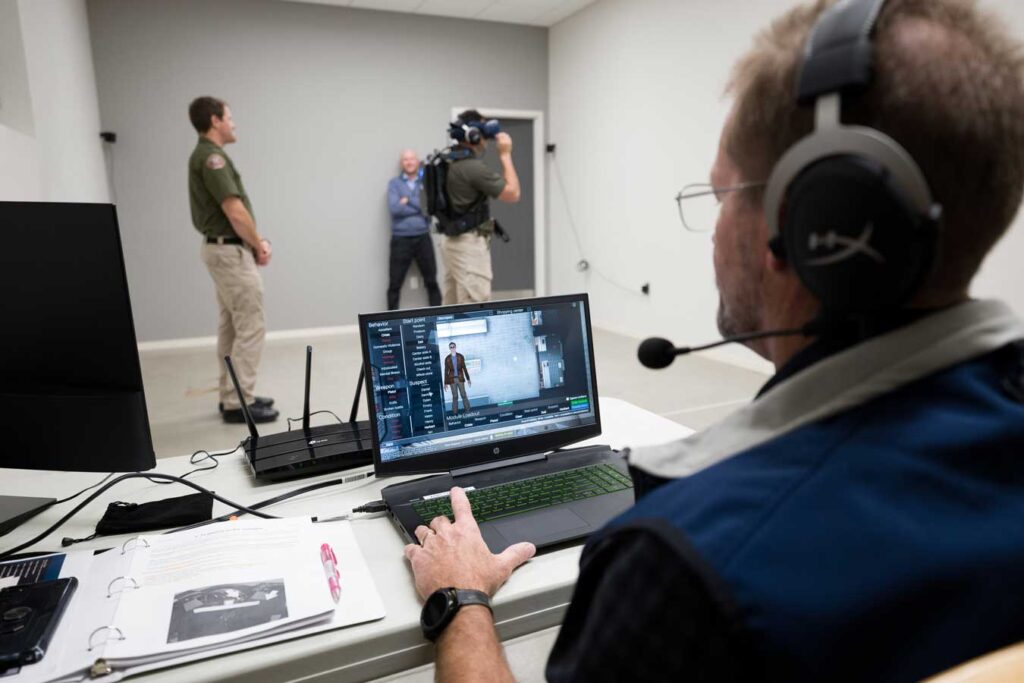USU to launch four-year criminal justice degrees


Andrea DeHaan, CHaSS Communications Editor
Professor Scott Henrie, seated at the computer, uses virtual reality to train officers at Utah State University Eastern. (Photo Credit: USU/Levi Sim)
Effective this fall, Utah State University will offer a bachelor of arts and a bachelor of science in criminal justice alongside its existing associate degree.
This shift is accompanied by an emerging partnership between USU’s criminal justice program and faculty in the Department of Wildland Resources to provide training for game wardens, park rangers and other federal law enforcement agents.
USU has a long history of training law enforcement officers, particularly at Utah State University Eastern, where the associate degree program is housed, but Program Director and Professor of Criminal Justice Scott Henrie said this change will provide greater options for those pursuing careers and promotions within this high-demand field. According to the Utah Department of Workforce Services, positions for patrol, correctional and probation officers are all on the rise.
“There are many job opportunities within the criminal justice arena, and many require a four-year degree,” Henrie said. “It will give students who want to pursue more advanced degrees, such as a law degree, a good base and help current officers achieve promotions … in the CJ field.”
A former sheriff’s deputy and probation/parole agent, Henrie has recently begun working with faculty in the Department of Wildland Resources to meet demand from students hoping to work for state as well as federal agencies including the U.S. Forest Service, Bureau of Land Management and National Park Service.
Connecting USU students across disciplines could make graduating with a foundation in both areas easier. Henrie hopes the four-year degree option will create a pathway to double major in criminal justice and wildland resources or add one as a minor so that graduates have expertise in both areas.
In 2017, USU began offering a major in sociology with a criminal justice emphasis. While this four-year option is not entirely dissimilar to the new bachelor program, the change will allow for the designation of a stand-alone criminal justice area and create expanded options for upper-division courses. Under the sociology emphasis, lower-division courses in criminal justice were offered alongside related upper-division sociology courses, leading to confusion among students and prospective employers.
The new criminal justice program will still be housed in the Department of Sociology and Anthropology, but the standalone designation should make it easier for prospective students to recognize and increase visibility for a potential online option down the road. By maintaining ties to the study of sociology, USU’s new criminal justice degrees will help train future officers in the nuanced areas of class, race, and gender, a move supported by the Utah System of Higher Education.
“It offers students a chance to gain the same basic CJ knowledge and also the study of those committing crimes and the environment surrounding the criminal atmosphere,” Henrie said. “It can also help many individuals gain a better world perspective.”
Students wishing to major in criminal justice will be required to have an overall USU grade point average of 2.5 or higher. Those interested in learning more should schedule an exploration appointment with College of Humanities and Social Sciences Academic Advisor Bailey Longhurst.




